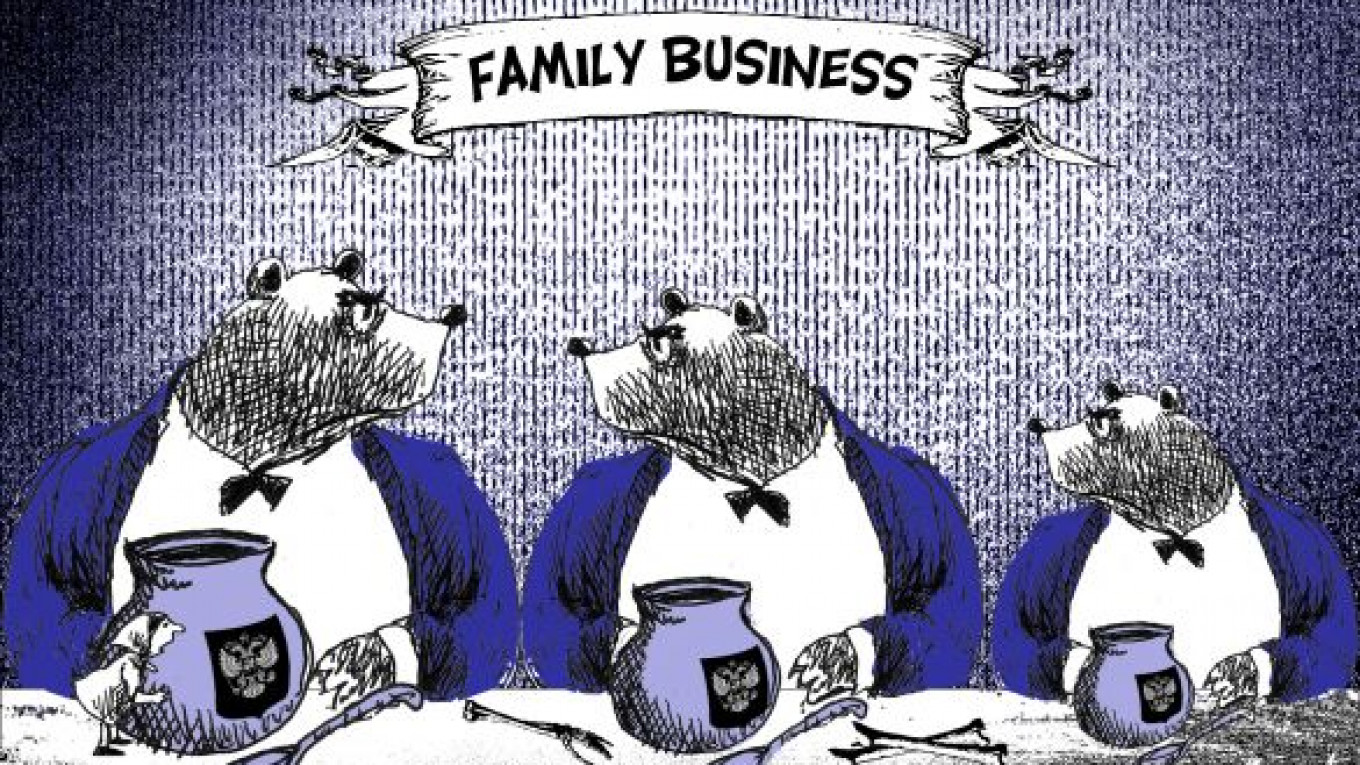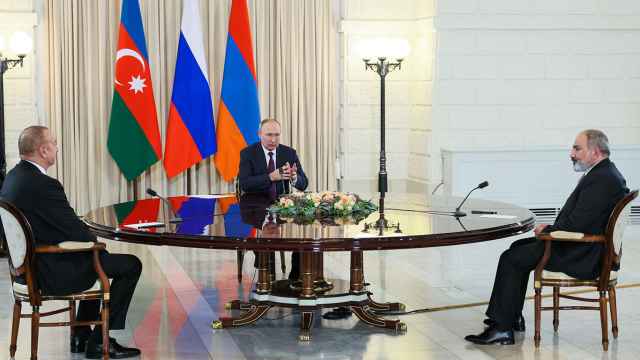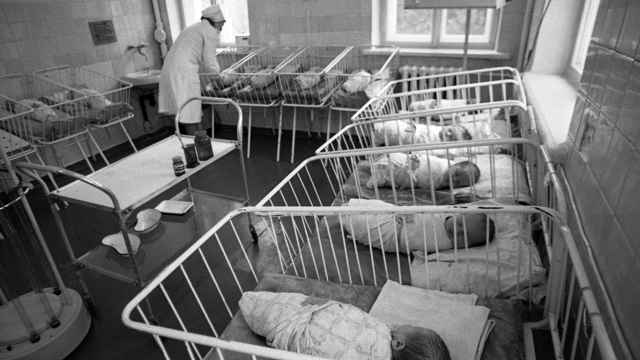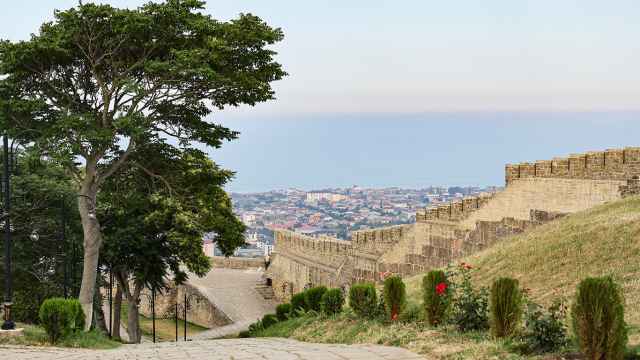I took an active part in the elections held in two beautiful republics of Siberia: Tyva and Khakasia. They offered a clear example of the dysfunctional political and economic system that has developed during President Vladimir Putin's rule, as well as the chaotic way in which it is disintegrating before our eyes.
First, that system could be called a "businessocracy." In both Tyva and Khakasia, career businessmen hold office and use their authority to enrich themselves, their families and their close friends.
Tyva is led by the ruling Kara-ool family's three brothers: Sholban, Leonid and Yury. Leonid Kara-ool recently served a prison term for drug trafficking, the local media implicated Yury in illegal seizures of businesses and Sholban, as the Moscow-appointed head of government, controls not only a large number of businesses, but also the republic's budget. A gas station belonging to Sholban Kara-ool's wife stands at the entrance to the Tyva capital, Kyzyl, and all state employees are required to fill their tanks there. The sale of alcohol is forbidden during evening hours in Kyzyl, but Sholban Kara-ool-owned shops sell vodka around the clock. The Kaa-Khemsky coal mine has a monopoly on supplying Tyva with coal but went bankrupt in 2009 and was sold to entities owned by billionaire Oleg Deripaska. The local opposition press reports that Kara-ool and Defense Minister Sergei Shoigu both own shares in the enterprise.
Local officials also make big money on state contracts. For example, over the past 10 years the cost of building a single kilometer of road in Tyva has risen from 1 million rubles ($30,000) to 100 million rubles ($3,000,000). The leadership of Kyzyl, with close ties to the Kara-ool brothers, is also actively engaged in business. They distribute state money to hand-picked businesses and occasionally seize control of other people's firms. These dealings are often reported by Risk, the republic's only opposition newspaper.
There is a similar system of government in the neighboring republic of Khakasia. The regional government is headed by Viktor Zimin who, like Kara-ool, was appointed by Moscow. Zimin was a businessman before coming to power. Both he and Kara-ool are united by their long friendship with Shoigu — a Tyva native — and a mutual love of horses, hunting and fishing.
The local press has linked Viktor Zimin to an automobile business and a coal mine. His wife, Tatyana Zimina, owns Prommetall, a business that was charged in 2009 with exporting expensive, high-grade steel from the Sayano-Shushenskaya hydroelectric power plant after the disastrous explosion there and listing it as cheap scrap iron in an attempt to export it to China. Criminal charges were filed in the case, but were later mysteriously dropped.
His brother, Vladimir Zimin, owns a sizable farming operation in the Askizsky district of Khakasia, where he also heads the District Council of Deputies. As a farmer, Vladimir Zimin receives major subsidies from the federal budget.
Viktor Zimin's niece previously headed the state purchasing department in Khakasia and another relative is developing business opportunities in Sayanogorsk after receiving a major state contract for repairs to the Sayano-Shushengskaya power plant. Several of Zimin's deputies are also involved in business.
This system of government is not only authoritarian, but also highly criminal.
Sholban Kara-ool has allegedly committed assault and battery and his associates have committed murder, attempted murder, rape, large-scale embezzlement and so on. When opposition figures Boris Nemtsov and Yevgenia Chirikova flew to the Khakasia captial Abakan two years ago, Zimin organized a crowd of aggressive youth who not only attacked the guests, but also disrupted their presentation of the report "Putin — Corruption."
In the recent elections, Zimin managed to have the local elections commission overrule two earlier decisions by the Central Elections Commission and prohibit Party of People's Freedom candidates from participating in the race for the Supreme Council of the republic. He also prevented Party of People's Freedom candidate Oleg Ivanov from passing the municipal filter required in order to run for the head of the Khakasia government.
This criminal "businessocracy" is also leading the regions toward total collapse.
Even while the authorities in Khakasia prosper, the republic's rich resources and industrial potential eke out a miserable existence. In fact, Tyva and Khakasia are ranked last in both Siberia and Russia overall for personal income, investment and business climate. Tyva suffers from 21 percent unemployment and has the highest infant mortality rate in the country.
Khakasia has a debt approaching 10 billion rubles ($300 million), with an annual budget of 16 billion rubles ($480 million), but the annual cost of supporting government officials has risen from 250 million rubles ($7.5 million) to 600 million rubles ($18 million). This debt has also not stopped Zimin from creating the government-run RTS television station at a cost of 300 million rubles. The citizens of Khakasia often go for months without access to subsidized medicine because of the enormous debt the republic's government already has to pharmacies.
The commercial interests of the people in power have distorted their priorities beyond recognition. The general welfare of the people is eclipsed by the vested interests of the ruling clans, the desire to suppress competition, the formation of regional and local monopolies, murky structures for embezzling state funds and the creation of a system of propaganda and repression designed to keep the beneficiaries of the "businessocracy" in power.
Finally and importantly, the people of Tyva and Khakasia are well-informed about the corrupt activities of the authorities and have extremely low faith in them. This creates opportunities for the opposition and activists to improve the political system and create more transparent and effective leadership in the regions.
Vladimir Ryzhkov, a State Duma deputy from 1993 to 2007, hosts a political talk show on Ekho Moskvy radio and is a co-founder of the opposition Party of People's Freedom.
A Message from The Moscow Times:
Dear readers,
We are facing unprecedented challenges. Russia's Prosecutor General's Office has designated The Moscow Times as an "undesirable" organization, criminalizing our work and putting our staff at risk of prosecution. This follows our earlier unjust labeling as a "foreign agent."
These actions are direct attempts to silence independent journalism in Russia. The authorities claim our work "discredits the decisions of the Russian leadership." We see things differently: we strive to provide accurate, unbiased reporting on Russia.
We, the journalists of The Moscow Times, refuse to be silenced. But to continue our work, we need your help.
Your support, no matter how small, makes a world of difference. If you can, please support us monthly starting from just $2. It's quick to set up, and every contribution makes a significant impact.
By supporting The Moscow Times, you're defending open, independent journalism in the face of repression. Thank you for standing with us.
Remind me later.








